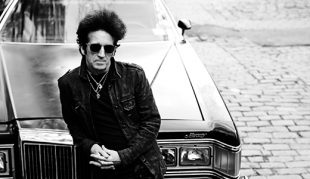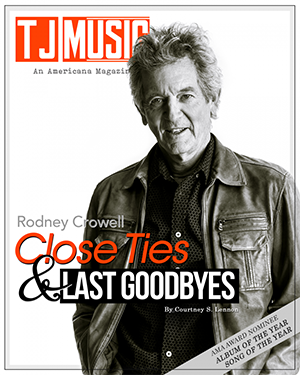It was once a place where writers such as F. Scott Fitzgerald and Mark Twain spent time honing their craft, but these days, Buffalo, NY is a city best known for blizzards, the invention of chicken wings and a football team that lost four consecutive Super Bowls. At the turn of the 19th century, Buffalo was home to the Pan American Exposition and was named “The Queen City” because of its booming 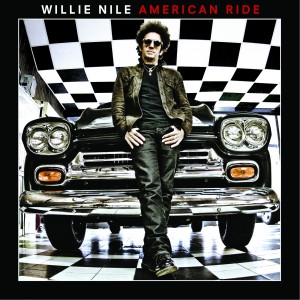 industry and connection to New York City due to the building of the Erie Canal – a gateway for boats coming from the ocean up to the Great Lakes. But ever since the latter half of the 20th Century, it became part of the Rust Belt, a reminder of the decline of the steel industry on account of outsourcing overseas. Economically, the city was hit hard. But Buffalo, which is often called “The City of Good Neighbors” and boasts the title of “The All American City,” is a place where legendary rock ‘n’ roll poet, Willie Nile still considers home. His humility and good nature, clearly a product of his environment. Though he has toured around the world and spent years in New York City, Nile closes out his latest record, the high energy punk-roots infused album, American Ride singing “There’s only one place for me, there’s no place like home.”
industry and connection to New York City due to the building of the Erie Canal – a gateway for boats coming from the ocean up to the Great Lakes. But ever since the latter half of the 20th Century, it became part of the Rust Belt, a reminder of the decline of the steel industry on account of outsourcing overseas. Economically, the city was hit hard. But Buffalo, which is often called “The City of Good Neighbors” and boasts the title of “The All American City,” is a place where legendary rock ‘n’ roll poet, Willie Nile still considers home. His humility and good nature, clearly a product of his environment. Though he has toured around the world and spent years in New York City, Nile closes out his latest record, the high energy punk-roots infused album, American Ride singing “There’s only one place for me, there’s no place like home.”
“Home will always be Buffalo,” Nile says. “I was born there, my dad is there, I have family there, so that’ll always be home. I think in a larger sense, home is wherever my shoes are, because I do travel so much, so I do realize there is a specialness to have a place you can go and call home.”
Born Robert Noonan to an Irish Catholic family in 1948, Willie Nile’s fan base includes legendary artists such as Pete Townshend, Bono, Lou Reed and Paul Simon. Growing up in Buffalo, Nile came from a musical family. His grandfather, Dick Noonan ran an orchestra in vaudeville for 20 years and his uncle John ran the Orchestra at Shea’s Buffalo, a performing arts center which is still around today. Nile grew up around music, but it wasn’t until his first year at college that he would find his footing as a songwriter.
“I had been writing poetry for a few years and I played the piano as a kid,” he says. “I took classical lessons. But once I learned the guitar, I started putting the poems I was writing into songs. Then I just put all my writing into songs.”
Nile, who attended the University at Buffalo, majored in Philosophy. His passion for knowledge, something that far outweighed career goals.
“I went to school just to get an education. These days when people go they are more career oriented, I was not. I just wanted an education.”
In the late 1960s, The University at Buffalo was known as “The Berkeley of The East” on account of its liberal mentality and socially conscious environment amidst the height of the Vietnam War. Though he studied Philosophy, Nile spent equal parts of his time at the University’s English department, which boasted Beat writer Robert Creeley as the department chair up until his death in 2005. When Nile attended, he was often exposed to Creeley’s friends during the school’s most tumultuous and intellectually rich years.
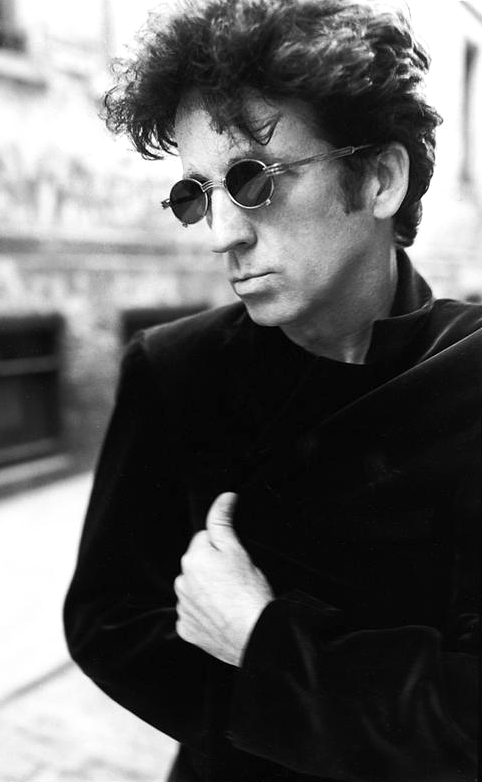 “I saw Timothy Leary walking through Norton hall high on LSD. He was looking at the ceiling. [Allen] Ginsberg – I saw him read a few times, they were interesting years. If you went to school there you got gassed. If they gassed people on [the] Main Street [campus] and you were waiting for a bus on Bailey avenue, you got gassed. It was a very rich and vibrant time to be alive there,” Nile recalls.
“I saw Timothy Leary walking through Norton hall high on LSD. He was looking at the ceiling. [Allen] Ginsberg – I saw him read a few times, they were interesting years. If you went to school there you got gassed. If they gassed people on [the] Main Street [campus] and you were waiting for a bus on Bailey avenue, you got gassed. It was a very rich and vibrant time to be alive there,” Nile recalls.
Nile’s family moved to Buffalo in the early 20th century, but before that, his family roots can be traced back to Lowell, Massachusetts, the hometown of Beat writer Jack Kerouac.
“My ties with Lowell are deep,” Nile says. “We still go there every summer. My dad used to go as a kid – he took us there in 1959 and we’ve gone there every year. My uncle Jimmy in Lowell was a Sergeant in the police force. I asked him one summer if he’d ever seen Jack Kerouac. He said ‘Yeah,’ he did. He walked in a book store and there was a bum on the floor near the door, asleep passed out and Jimmy walked over to the shop’s proprietor and said ‘I’ll get rid of that guy for you’ and [the shop owner] said ‘No, no, don’t, don’t. You know who that is? Jack Kerouac. He just signed books, they’re worth a lot of money.’ Very very sad. So he didn’t bother him or arrest him or anything, but poor Jack,” Nile explains. “I still read the Beats all the time, they inspire me to no end. Their freedom and thought, I always feel more relaxed reading that stuff. The free association, the stream of consciousness.”
When Nile graduated from college, he decided to move to New York City, a six hour drive from Buffalo. Like the Beats and Bob Dylan before him, Nile made Greenwich Village his new home.
“In my senior year I went to my philosophy advisor and I hadn’t met him before, talk about no plan. I said ‘How am I doing?’ ….I asked what I could do with a philosophy degree and he said ‘You can go to graduate school.’ So I moved to New York to do music,” Nile says.
He spent his first winter in New York suffering through a bout of pneumonia. His first time ever performing in front of an audience was in Greenwich Village where he would do acoustic sets.
“They said I was a folkie. But really I was playing rock songs solo. I used to introduce an imaginary band,” Nile laughs.
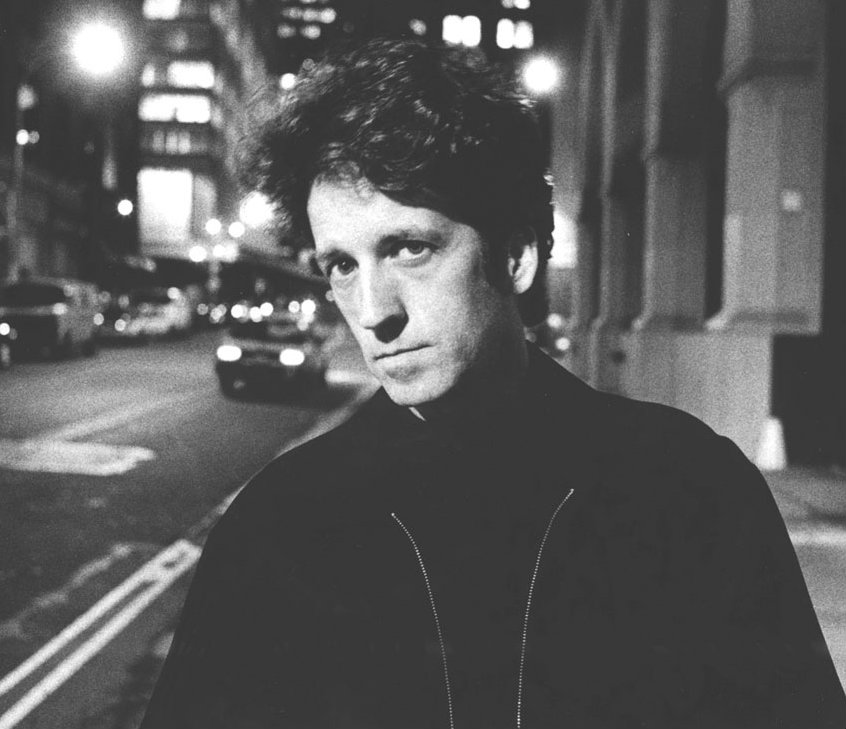 Though in many ways Nile recalls Bob Dylan, at heart, he is a punk rocker. During his early days in NYC, he would hang out at CBGBs where he saw the likes of Patti Smith, Television and The Ramones. Upon establishing a residency at the Greenwich Village club Kenny’s Castaways on Bleeker St., Nile picked up a fan base and began drawing crowds which led to his first record deal after New York Times, rock critic Robert Palmer wrote a glowing review, saying of Nile, “Every once in awhile the times seems to produce an artist who is at once an iconoclast and near-perfect expression of contemporary currents. He is one of the best singer-songwriters to emerge from the New York scene in a long time.”
Though in many ways Nile recalls Bob Dylan, at heart, he is a punk rocker. During his early days in NYC, he would hang out at CBGBs where he saw the likes of Patti Smith, Television and The Ramones. Upon establishing a residency at the Greenwich Village club Kenny’s Castaways on Bleeker St., Nile picked up a fan base and began drawing crowds which led to his first record deal after New York Times, rock critic Robert Palmer wrote a glowing review, saying of Nile, “Every once in awhile the times seems to produce an artist who is at once an iconoclast and near-perfect expression of contemporary currents. He is one of the best singer-songwriters to emerge from the New York scene in a long time.”
“He came to see me,” Nile says of Palmer. “Well, he came to see the headliner, but he never wrote about the headliner. Someone had told him ‘You should see this guy opening up, he’s special.’ So a few days later the review came out, it was the kind of review you dream about. Then all the record companies came to sign me and I was off to the races.”
Landing a deal with Arista Records, Nile made his first record, the self-titled 1980 album Wille Nile, which he recorded at legendary sound engineer, Gary Kellgren’s Record Plant in NYC. Before recording the album, Nile had only performed his songs solo.
“When I made my record I only rehearsed for four days,” Nile explains. “I’d never played with a band before. But I knew in my mind what I wanted, I had a good idea. Then the record came out and it was critically praised. I was really lucky and I knew it. I didn’t take it seriously, I mean I did, I appreciated it, but I thought I had a lot to learn. I was really beginning. It was a great time.”
Nile is still in amazement of his early days, not in any way speaking from a place of entitlement, but rather, disbelief and appreciation. The beginning of his career was something of a world-wind, his talent rising to the top and giving him opportunities an aspiring songwriter dreams of. And shortly after putting out his first record, Nile was told by an executive at Arista that Pete Townshend was a big fan of his music.
”I thought “Oh yeah? Bullshit. Oh Yeah? Cool.” I didn’t really think much of it,” Nile says, figuring the compliment was something he shouldn’t take seriously. “Next thing, we’re touring for three weeks across the US, it was the first touring I’d ever done in my life. I’d played acoustically in Manhattan, but never with a band, so here I am touring across the US and we get to LA at the Roxy and the Who’s management came… Freddy mercury was in the house…it was pretty interesting times.”
The show would be a milestone event in Nile’s career. It turned out the compliment from Pete Townsend was going to present him with his next big opportunity.
“The [Who’s] management came backstage and asked me if I wanted to open up for the Who tour. They kicked the UK band that was opening off. And we proceeded to tour across the US with the Who. It was the time of our lives, it was really fun. From going to playing clubs in NY to playing in front of 20,000 fans in a matter of weeks,” Nile says.
The tour with the Who gave Nile a rock star experience, but he always remained grounded. Much like his goal with his schooling was education for the sake of learning, he did his music because he loved music, it wasn’t for the fame.
“The American idol thing was never my goal, the beauty of the songs and the music was my goal,” Nile reminds. “I wrote songs initially and still do because they inspire me – they help make sense of the world for me. It’s not about, ‘This is going to get me on TV, it’s going to get me famous’ – I don’t care about fame. I’d love to be rich, no question about it because it’d make things easier. But the fame thing? I knew early on that was a false road, full of false prophets and that’s not a road I chose and still don’t.”
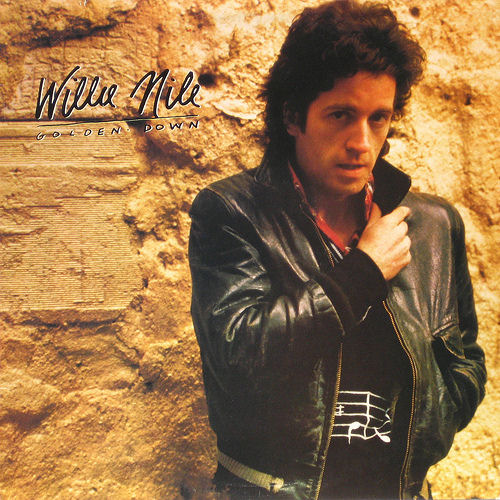 When he returned from his tour with the Who, Nile went back in the studio to record his second album, Golden Down, once again at the Record Plant. His recording experience, one that lands itself in the history of popular music. At the time Nile was recording, John Lennon was working on the Yoko Ono song, “Walking on Thin Ice,” his final recording before his untimely death on December 8, 1980.
When he returned from his tour with the Who, Nile went back in the studio to record his second album, Golden Down, once again at the Record Plant. His recording experience, one that lands itself in the history of popular music. At the time Nile was recording, John Lennon was working on the Yoko Ono song, “Walking on Thin Ice,” his final recording before his untimely death on December 8, 1980.
“I didn’t meet [John], I was to meet him the next night,” Nile says. “I was in Studio A – the main room with the black piano where John recorded “Instant Karma” – all the stuff he did in NY. I knew he was in the building, my co-producer Thom Panunzio knew John – he worked with him in the past, was friends with him. He said he’d introduce me when the time was convenient.”
Nile recorded Friday and Saturday. On Sunday night around midnight, he got a call from the engineers working with Lennon saying that John was out of guitar strings.
“We all go diving in our bags for guitar strings and I got some strings and was going to put a note saying “Hey John thanks for all the music, love you,” But I thought “That’s too corny I’m going to meet him Tuesday night and I’ll tell him when I see him.” So I sent the strings out and we worked a couple more hours and we went home and the next day we came in and the engineers told us John had recorded from midnight until 5 in the morning doing guitar work on “Walking on Thin Ice.”
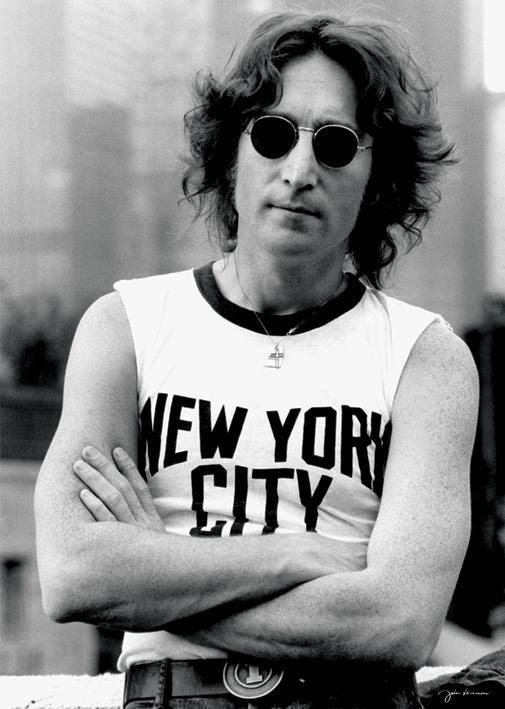 That night, Thom Panunzio said he had a friend in New Jersey who collected autographs. The friend asked Panunzio if he could get John’s autograph. Panunzio asked an engineer to get an autograph” for the guy who gave him the strings” so Lennon would do it as a returned favor.
That night, Thom Panunzio said he had a friend in New Jersey who collected autographs. The friend asked Panunzio if he could get John’s autograph. Panunzio asked an engineer to get an autograph” for the guy who gave him the strings” so Lennon would do it as a returned favor.
“John thought it was for the guy who gave him the strings,” Nile says. “So he wrote on this note, “To Ken – thanks for stringing me along, Love John” and drew a picture of his face and put 1980. It was the last autograph he gave. And the strings were the last thing he recorded with.”
“Then [John] walked out the door and five minutes later he was mortally shot,” he continues. “We were still recording and Thom came back in and we were just focused on recording and he said “Somebody just shot John” and it didn’t compute. “John who?” and he said “John Lennon” and then all hell broke loose, the phones were ringing off the hook.”
Nile lends further insight on the events of that evening. Before he left the studio, Lennon asked his bodyguard Bobby to go out to dinner with him. Nile spoke to the bodyguard who said “John was in the best mood [that night].”
“John had just mixed “Walking on Thin Ice” and he was thrilled about it. Double Fantasy was No. 1 and Bobby said John felt that Yoko was finally getting respect and praise from the press and he was so happy about that, he loved her and was happy,” Nile recalls.
As Lennon was leaving, that night, he asked Bobby to go out and celebrate. Unfortunately, Bobby was sick and declined the invitation.
“John put his arm around [Bobby] and said ‘Ok don’t worry about it. Go home, feel better we’ll do it another night.’ So instead of going out to dinner with the bodyguard who no doubt would have accompanied them home, they went straight home. What if Bobby could have prevented what happened? We’ll never know,” Nile wonders.
The events of that evening undoubtedly shocked the world. For Nile to have been there that night, was certainly something that had a great impact on his life. The recording of his sophomore record, Golden Down, also significant in that it would be the final album Nile would record for the next decade. Though artistically, Nile was at the top of his game, he wasn’t prepared for the sometimes dirty business aspects that go along with the industry.
“I walked away from it,” Nile says. “Problems with a former lawyer, problems with a former manager, people coming around – the water was full of sharks. I got into it to have fun and for the beauty of it and that was my motivation. When it was turning into a quagmire business, I just said ‘Screw this, I’m out.’ I had two kids and a new baby on the way, so I said ‘screw this’ and moved back to Buffalo. I didn’t need it.”
Walking away in the midst of success might seem crazy, but Nile is an artist who believes first and foremost in integrity and honesty. Upon leaving the business, he returned to Buffalo, a place that is far from all the chaos of a money conscious industry.
“I was [in Buffalo] on and off in the 80’s raising my children. I lived off the savings I had. I had a publishing deal – that helped me get through. It was tough times, hard times, but valuable times in that I was able to work on my craft. And develop as a songwriter away from the cameras. Because really, it’s an inner thing, at least for me it is. I was just writing and writing so when I had enough material I was able to make a record – I made some phone calls. No one was interested. It’s very fickle, that whole world. But I never had any bitterness. I had mostly good things, but when it wasn’t fun I was like ‘well, I’m out.’”
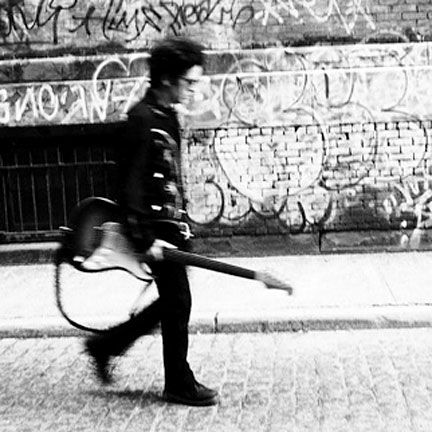 In 1991, Nile returned with his album, Places I Have Never Been which featured guests Richard Thompson, Loudon Wainwright III, and Roger McGuinn of the Byrds. Despite being a solid album of some of the era’s best rock tunes, it didn’t make the commercial impact it should have. It wasn’t until the release of Nile’s 2006 album, Streets of New York that he made his popular and critical re-emergence into the music world. Releasing the album on 00:02:59 Reincarnate Music, Streets of New York marked Nile’s turn toward independent labels and the album was Nile’s tribute to the city that launched his career. On Streets of New York, he paints an image of the real, gritty side of New York in a way that Bukowski did for LA through his literature, singing on the title track “The Streets of New York, a maze made of iron and stone. A labyrinth complete, with edges that cut through the bone. They come by the millions, the hipster, the prince and the clown. They come cause they know that something’s going down on the streets of New York.”
In 1991, Nile returned with his album, Places I Have Never Been which featured guests Richard Thompson, Loudon Wainwright III, and Roger McGuinn of the Byrds. Despite being a solid album of some of the era’s best rock tunes, it didn’t make the commercial impact it should have. It wasn’t until the release of Nile’s 2006 album, Streets of New York that he made his popular and critical re-emergence into the music world. Releasing the album on 00:02:59 Reincarnate Music, Streets of New York marked Nile’s turn toward independent labels and the album was Nile’s tribute to the city that launched his career. On Streets of New York, he paints an image of the real, gritty side of New York in a way that Bukowski did for LA through his literature, singing on the title track “The Streets of New York, a maze made of iron and stone. A labyrinth complete, with edges that cut through the bone. They come by the millions, the hipster, the prince and the clown. They come cause they know that something’s going down on the streets of New York.”
Following up Streets of New York, Nile released House of a Thousand Guitars in 2009. The title track, a catchy single that encompasses Nile’s music, sounding equal parts Bob Dylan, The Clash and The Velvet Underground while maintaining true originality and the rollicking energy Nile is known for. Nile’s last record, The Innocent Ones and his latest album, the self-released American Ride, show that throughout the years, Nile has yet to slow down.
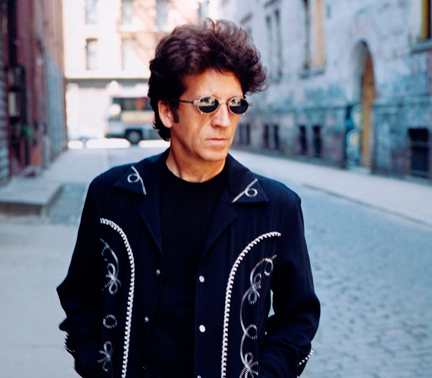 On American Ride, Nile sounds as if he is still a twenty-something rocker, his voice maintaining the rasp that it’s always had, yet not having seemed to age at all. Opening up the record with the high-energy generational anthem, “This is Our Time,” Nile proves that he hasn’t lost passion or social consciousness. Songs like the “Oi!” filled “Life on Bleeker” street maintain the same NYC backdrop, punk tone and descriptive commentary that he is known for while “American Ride” speaks to his folk roots, retrospective lyrics and poetic abilities. Though it has been forty years since the end of the Vietnam War, Nile still has the same student-protest mentality he did in his early days on tracks like “Those are People Who Died” and the modern anti-war track, “Holy War.” Nile’s sing-along “Sunrise in New York City” is an instant classic that ought land itself with “House of A Thousand Guitars” in terms of pop appeal. The dynamic collection of songs makes American Ride one of the freshest and most inspired albums of this year – Nile hasn’t slowed down and fans should look forward to things to come. At this point in his career, Nile says that he is enjoying his and is having the most fun he’s had as an artist.
On American Ride, Nile sounds as if he is still a twenty-something rocker, his voice maintaining the rasp that it’s always had, yet not having seemed to age at all. Opening up the record with the high-energy generational anthem, “This is Our Time,” Nile proves that he hasn’t lost passion or social consciousness. Songs like the “Oi!” filled “Life on Bleeker” street maintain the same NYC backdrop, punk tone and descriptive commentary that he is known for while “American Ride” speaks to his folk roots, retrospective lyrics and poetic abilities. Though it has been forty years since the end of the Vietnam War, Nile still has the same student-protest mentality he did in his early days on tracks like “Those are People Who Died” and the modern anti-war track, “Holy War.” Nile’s sing-along “Sunrise in New York City” is an instant classic that ought land itself with “House of A Thousand Guitars” in terms of pop appeal. The dynamic collection of songs makes American Ride one of the freshest and most inspired albums of this year – Nile hasn’t slowed down and fans should look forward to things to come. At this point in his career, Nile says that he is enjoying his and is having the most fun he’s had as an artist.
“Basically I’m just a guy who loves to write songs that are meaningful to me and hope they might be to someone else. My aspirations aren’t world domination to any degree, just write my songs put them out there and hope I make a good living from it. I’m having a great time,” he says.
Now an established legend in the rock world, his advice for up and coming songwriters, clearly the path that he has followed from day one, which is why to this day, his music still cuts to the core.
“Follow your instincts,” Nile advises. “Follow your heart, do things and make decisions that are meaningful to you. Go from the inside out, not the outside in. if it means something to you it might mean something to something else. It doesn’t matter how you dress it up if it’s going to be real and it comes from a real place, it means something to you it might mean something to someone else.”
www.willienile.com | fb | buy
Courtney S. Lennon
Latest posts by Courtney S. Lennon (see all)
- Billy Joe Shaver: August 16,1939 – October 28, 2020 - November 2, 2020
- You Are About To Become Involved With Van Dyke Parks! - July 13, 2020
- The Hero of Texas Music History - July 23, 2019

